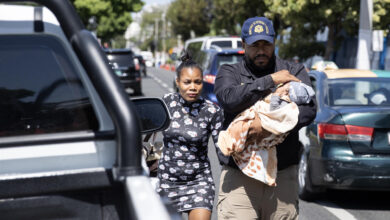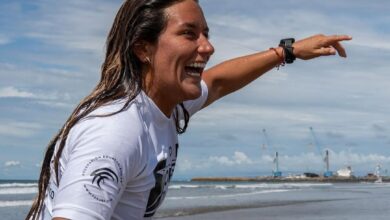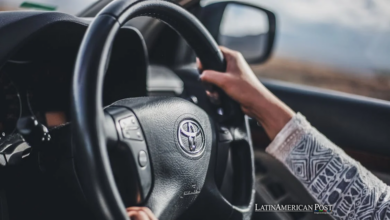Women in Political Revolutions
The female role during the colony was relegated to home functions, however, depending on their racial origin or ancestry, some Creole women (daughters of natives and Spaniards) were able to attend school and rub shoulders with high society.

The Woman Post | ALEXANDRA DOMINGUEZ
Listen to this article
Read more content like this at: thewomanpost.com
Towards the end of 1700, some of them, taking advantage of their economic or social condition, worked secretly for the causes of liberation, not only because they were against mistreatment and subjugation, but also because some had brothers, husbands, or relatives who were part of the patriotic armies that were fighting against the royalists (settlers).
However, there were not only Creole women, but also native (aboriginal) and Afro-descendant women, of inferior social lineage, but decisive in achieving independence.
Many pages have been written about the role of male heroes and liberators, while women have been relegated to the background, however, with the passage of time and female emancipation, more and more women are being recognized for their important role during the wars of independence.
Their functions depended on their social position, some worked as spies and informants because they could access information about the settlers, others used their jewelry and wealth to finance the independence movement, others were nurses, caretakers, cooks, dressmakers (making uniforms), hid or they rescued people and/or prisoners, others were themselves soldiers at the front lines of the battle and developed attack and defense strategies, some held high military ranks or received that honor posthumously.
From the United States to Argentina, history tells of brave women who even lost their own lives to defend the independence cause, those names contain the value and courage of their protagonists.
Some of these women are:
In the United States, Mary Hays McCauly known as “Molly Pitcher” cooled cannons with water during the Battle of Monmouth; Margaret Corbin fought alongside her husband during the attack on Fort Washington, when he died of his injuries, she took her place to continue shooting; Deborah Sampson spent 17 months disguised as a soldier under the name "Robert Shurtleff" in the War of the 13 Colonies.In Peru, Micaela Bastidas Puyucahua, a zamba woman (mixture of Africans and indigenous people) wife of José Gabriel Condorcanqui (Túpac Amaru II), led a revolution to end the abuses of the settlers, they tried to pay her to hand over her husband and failing to do so, they sentenced her to death, but before she arrived, they forced her to watch the execution of one of her three children. Before she died, she said: "For the freedom of my people, I have renounced everything. I will not see my children flourish." ".In Bolivia, Juana Azurduy together with her husband Miguel Asencio Padilla fulfilled military roles in favor of independence, to the point of reaching the rank of lieutenant colonel at the hands of Simón Bolívar; having been born during the viceroyalty in the colony of the Rio Plata, her deeds are also recognized in Argentina.
Bartolina Sisa, a brave woman of Aymara (aboriginal) origin who, together with her husband Tupac Katari, led movements against colonialist exploitation, was named viceroy in 1781 by her right, in 1782 she was sentenced to death.
In Chile, Francisca Javiera Carrera Verdugo, an aristocratic sister of patriotic soldiers, took part in hiding weapons and soldiers, then went into exile in another country where she continued her work within the patriotic movement.
In Mexico, we find Josefa Ortiz de Domínguez, decisive with her participation in the Querétaro conspiracy, and María Ignacia Rodríguez de Velasco (Güera Rodríguez), to whom prominence is attributed in the Plan of Iguala, it is said that she had an affair with Simón Bolivar.
In Argentina, the following stand out: María Remedios del Valle, an Afro-descendant woman who fought with the Army of the North; María Magdalena Dámasa de Güemes de Tejada, sister of the patriot General Martín Miguel de Güemes; and Mariquita Sánchez de Thompson.
In Colombia, Manuelita Sáenz, Manuela Beltrán, and Policarpa Salavarrieta, among others, are recognized. The 10,000 Colombian pesos coin has recently been dedicated to the latter.
Also, María Remedios del Valle, Josefa Ortiz de Domínguez, Leona Vicario, and Juana Azurduy have been represented on banknotes and coins in their own countries.
Other anonymous women who participated in independence are known as0 "Las Juanas" (Colombia) and "Las Adelitas" in Mexico.




